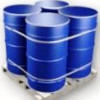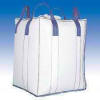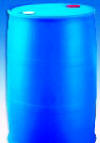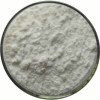| Anmol Chemicals is the pioneer manufacturers of Propyl Paraben or Propylparaben or Propyl para-Hydroxybenzoate, Pharmaceutical Excipients Fragrance & Flavor chemicals in India. We offer Halal and Kosher Propyl Paraben or Propylparaben or Propyl para-Hydroxybenzoate made in an ISO9001, ISO22000 (FSSC22000) and cGMP GLP certified facility. Our group has several manufacturing facilities spread across the world, supported by toll manufacturers and representatives in UAE, Europe, Africa, USA, China and has several associated manufacturing facilities spread across India. All the Information on Physics, Chemistry, Applications, Uses and Technology on Manufacture of Propyl Paraben or Propylparaben or Propyl para-Hydroxybenzoate is in these pages. |
| The units have one or more of the certifications like FDA GMP, ISO 9001, ISO 22000, HACCP, REACH, Kosher & Halal |
Propyl Paraben or Propylparaben or Propyl para-Hydroxybenzoate BP Ph Eur USP NF FCC Food Grade Manufacturers
CAS Number: 94-13-3, EINECS EC Number: 202-307-7, Molecular Formula: C10H12O3, Molecular Weight: 180.2
Propyl Paraben or Propylparaben or Propyl para-Hydroxybenzoate SDS of Manufacturers
Parabens are a class of widely used preservatives in cosmetic and pharmaceutical products. They are found in shampoos, commercial moisturizers, shaving gels, personal lubricants, topical/parenteral pharmaceuticals, suntan products, makeup, and toothpaste. They are also used as food additives. Parabens are active against a broad spectrum of microorganisms.
Propylparaben, the n-propyl ester of p-hydroxybenzoic acid, occurs as a natural substance found in many plants and some insects, although it is manufactured synthetically for use in cosmetics, pharmaceuticals and foods. It is a preservative typically found in many water-based cosmetics, such as creams, lotions, shampoos and bath products. As a food additive, it has the E number E216. European Union Scientific Committee on Consumer Safety considered the use of butylparaben and propylparaben as preservatives in finished cosmetic products as safe to the consumer, as long as the sum of their individual concentrations does not exceed 0.19%. Sodium propyl p-hydroxybenzoate, the sodium salt of propylparaben, a compound with formula Na(C3H7(C6H4COO)O), is also used similarly as a food additive and as an anti-fungal preservation agent. Its E number is E217.
Propyl Hydroxybenzoate BP Grade Specifications
Propylparaben
Propyl Parahydroxybenzoate, Ph Eur
C10H12O3 --- 180.2 --- 94-13-3
Action and use: Antimicrobial preservative.
DEFINITION
Propyl 4-hydroxybenzoate.
Content: 98.0 per cent to 102.0 per cent.
CHARACTERS
Appearance: White or almost white, crystalline powder.
Solubility: Very slightly soluble in water, freely soluble in alcohol and in methanol.
IDENTIFICATION
First identificationıA, B.
Second identificationıA, C, D.
A. Melting point: 96C to 99C.
B. Infrared absorption spectrophotometry. Comparisonıpropyl parahydroxybenzoate CRS.
C. Examine the chromatograms obtained in the test for related substances.
Results: The principal spot in the chromatogram obtained with test solution (b) is similar in position and size to the principal spot in the chromatogram obtained with reference solution (b).
D. To about 10 mg in a test-tube add 1 ml of sodium carbonate solution, boil for 30 s and cool (solution A). To a further 10 mg in a similar test-tube add 1 ml of sodium carbonate solution; the substance partly dissolves (solution B). Add at the same time to solution A and solution B 5 ml of aminopyrazolone solution and 1 ml of potassium ferricyanide solution and mix. Solution B is yellow to orange-brown. Solution A is orange to red, the colour being clearly more intense than any similar colour which may be obtained with solution B.
TESTS
Solution S: Dissolve 1.0 g in alcohol and dilute to 10 ml with the same solvent.
Appearance of solution: Solution S is clear and not more intensely coloured than reference solution.
Acidity: To 2 ml of solution S add 3 ml of alcohol, 5 ml of carbon dioxide-free water and 0.1 ml of bromocresol green solution. Not more than 0.1 ml of 0.1 M sodium hydroxide is required to change the colour of the indicator to blue.
Related substances: Thin-layer chromatography to pass the test. (0.5 per cent).
Sulphated ash: Maximum 0.1 per cent, determined on 1.0 g.
IMPURITIES
A. R = H: 4-hydroxybenzoic acid,
B. R = CH3: methyl 4-hydroxybenzoate,
C. R = CH2-CH3: ethyl 4-hydroxybenzoate,
D. R = CH2-CH2-CH2-CH3: butyl 4-hydroxybenzoate.
Propylparaben USP NF Grade Specifications
C10H12O3 --- 180.20
Benzoic acid, 4-hydroxy-, propyl ester.
Propyl p-hydroxybenzoate [CAS 94-13-3].
Propylparaben contains not less than 98.0 percent and not more than 102.0 percent of C10H12O3.
Identification:
A: Infrared Absorption 197M .
B: Melting range: between 96C and 99C.
Color of solution: Dissolve 1 g in alcohol, dilute with alcohol to 10 mL, and mix (Propylparaben solution). This solution is clear and not more intensely colored than alcohol or a solution prepared immediately before use by mixing 2.4 mL of ferric chloride, 1.0 mL of cobaltous chloride, and 0.4 mL of cupric sulfate with 0.3 N hydrochloric acid to make 10 mL, and diluting 5 mL of this solution with 0.3 N hydrochloric acid to make 100 mL. Make the comparison by viewing the solutions downward in matched color-comparison tubes against a white surface.
Acidity: To 2 mL of Propylparaben solution prepared in the Color of solution test add 3 mL of alcohol, 5 mL of carbon dioxide-free water, and 0.1 mL of bromocresol green, and titrate with 0.10 N sodium hydroxide: not more than 0.1 mL is required to produce a blue color.
Residue on ignition: not more than 0.1%, determined on 1.0 g.
Related substances: To pass the test.
Propylparaben FCC Food Grade Specifications
Propyl p-Hydroxybenzoate
C10H12O3 Formula wt 180.20
INS: 216 CAS: [94-13-3]
DESCRIPTION
Propylparaben occurs as small, colorless crystals or as a white powder. One gram dissolves in about 2500 mL of water at 25C, in about 400 mL of boiling water, in about 1.5 mL of alcohol, and in about 3 mL of ether.
Function: Preservative; antimicrobial agent.
REQUIREMENTS
Identification: Dissolve about 500 mg of sample in 10 mL of 1 N sodium hydroxide, and boil for 30 min, allowing the solution to evaporate to a volume of about 5 mL. Cool the mixture, and carefully acidify it with 2 N sulfuric acid. When the precipitate is cool, collect it on a filter, wash it several times with small portions of water, and dry it in a desiccator over silica gel. The liberated p-hydroxybenzoic acid melts between 212C and 217C.
Assay: Not less than 99.0% and not more than 100.5% of C10H12O3, calculated on the dried basis.
Acidity: Passes test.
Lead: Not more than 2 mg/kg.
Loss on Drying: Not more than 0.5%.
Melting Range: Between 95° and 98°.
Residue on Ignition: Not more than 0.05%.
Propyl Paraben or Propylparaben or Propyl para-Hydroxybenzoate BP Ph Eur USP NF FCC Food Grade manufacturers at:
Anmol Chemicals
S-8, SARIFA MANSION, 2ND FLANK ROAD, CHINCHBUNDER, MUMBAI 400009, INDIA
TEL: (OFFICE) 91-22-23770100, 23726950, 23774610, 23723564. FAX: 91-22-23728264
e-mail: anmolc@mtnl.net.in

Exports to USA, Canada, UAE, Dubai, South Africa, Tanzania, Kenya, Nigeria, Egypt, Uganda, Turkey, Mexico, Brazil, Chile, Argentina, Europe Netherlands, Italy, Spain, Germany, Portugal, France, Malaysia, Indonesia, Thailand, Russia, Korea, Japan, etc.
Copyright and Usual Disclaimer is Applicable. 11 January, 2022





